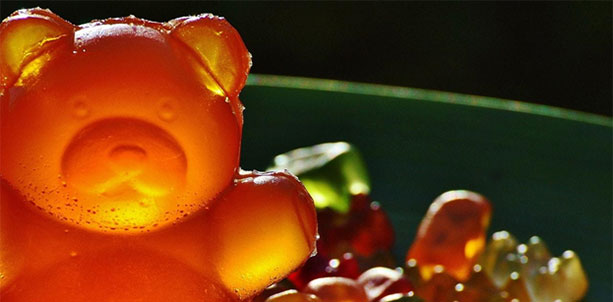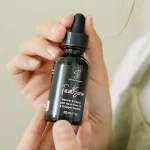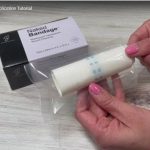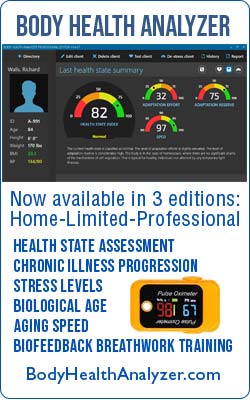Eating CBD gummies from companies like Every Day Optimal is one of the easy ways of dosing with cannabidiol. Each gummy from this particular brand contains 10, 15 to 25 milligrams of cannabidiol, making it easier for you to get your recommended dose by simply eating the number of gummies that you dose requires. CBD gummies belong to a group of CBD infused products called “edibles” and as the term implies, you eat these to get your dose of this hemp derivative.
There’s no question that CBD edibles have made self-administering CBD easier. Does the ease of self-administration with the edibles translate to faster absorption? Can CBD gummies get you instant relief?
How Does CBD Work?
Cannabidiol or CBD is one of the active compounds found in hemp, which is a strain of the cannabis sativa plant family. Although marijuana does contain trace amounts of CBD, this compound is most abundant in industrial hemp. Early research into CBD have suggested that it has various potential medical applications. Studies indicate that CBD may be a viable treatment and therapeutic option for a wide range of medical conditions including anxiety and sleep1, chronic pain2, and more.
Many have been using CBD for the treatment and management of various health issues. Despite this, however, data on the exact mechanism of action of CBD is limited. CBD belongs to a group of compounds called cannabinoids and such compounds trigger reactions in the body by attaching to receptors. The body itself produces its own cannabinoids, which can also attach to its cannabinoid receptors called CB1 and CB2 receptors3.
CB1 receptors, which are found mostly in the brain, are responsible for the body’s movement and coordination, for pain, mood, logical thinking and a number of other functions. The other cannabinoid receptor, CB2, regulates the body’s inflammatory and pain reactions. It was initially thought that CBD attaches to these two receptors to trigger positive responses. However, recent studies suggest that CBD actually encourages the body to produce its own cannabinoids and then attach to the CB1 and CB2 receptors.
Benefits of Supplementing with CBD
Once the body’s own cannabinoids are produced and subsequently attaches to the CB1 and CB2 receptors, it results in the following benefits.
Better circulation. Experts have observed that CBD has the ability to relax the veins in a phenomenon called vasodilation4. This allows the blood to circulate freely around the body, which in turn has a number of other health benefits. Vasodilation relieves some of the stress from the heart, thus may be effective in preventing certain heart conditions. The vasodilating properties of CBD may also help mitigate the effects of hypertension.
Pain management and anti-inflammatory properties. Many users of CBD swear by its ability to relieve chronic pain and relieve inflammation. Studies are still underway to fully understand how CBD does the job, but many are already enjoying its benefits, particularly those who would rather go with a natural product that does not cause stress the liver.
Mood regulation. Other users of CBD take regular doses to help mitigate and manage their anxiety and depression. Studies are also underway to determine the extent and long term effects of CBD’s anxiolytic properties.
Can CBD Gummies Give You Quick Relief?
The simple answer is yes however people will react differently. CBD has been observed to be highly bioavailable and that it crosses the blood-barrier easily. Some studies are being conducted to see if it is possible for CBD to serve as transport for certain drugs to be absorbed into the system faster and more efficiently. Once you pop a CBD gummy into your mouth, your saliva and chewing action will start breaking it down. While chewing, some of the CBD will be instantly absorbed via the mucous membranes inside the mouth. More of the CBD in the gummies will be absorbed quickly once it hits the intestines as the stomach enzymes further breaks down the gummies.
Consuming CBD in general, whether in the form of tinctures or edibles, can give you quick results. The real question should be, what is the right CBD dose for your needs and how often should you self-administer throughout the day. This is of course, a subject for another discussion.
References:
- Scott Shannon, MD,corresponding author Nicole Lewis, ND, Heather Lee, PA-C, and Shannon Hughes, PhD. Cannabidiol in Anxiety and Sleep: A Large Case Series Perm J. 2019; 23: 18-041. Published online 2019 Jan 7. doi: 10.7812/TPP/18-041
- Jan M Schilling, Chloe G Hughes, Mark S Wallace, Michelle Sexton, Miroslav Backonja, and Tobias Moeller-Bertram Cannabidiol as a Treatment for Chronic Pain: A Survey of Patients’ Perspectives and Attitudes J Pain Res. 2021; 14: 1241–1250. Published online 2021 May 5. doi: 10.2147/JPR.S278718
- K Mackie Mechanisms of CB1 receptor signaling: endocannabinoid modulation of synaptic strength Int J Obes 30 (Suppl 1), S19–S23 (2006). https://doi.org/10.1038/sj.ijo.0803273
- P. Pacher, S. Bátkai, and G. Kunos Cardiovascular Pharmacology of Cannabinoids Handb Exp Pharmacol. 2005; (168): 599–625. doi: 10.1007/3-540-26573-2_20











